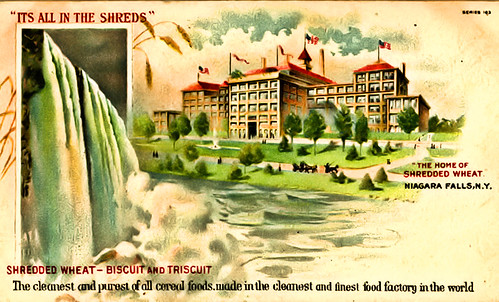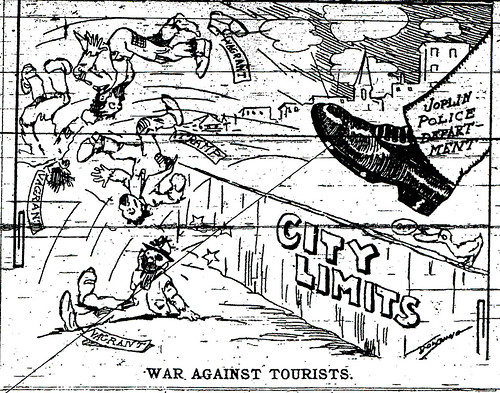Joplin was a stopping point for many hoboes and railroad tramps and one can only assume that they hoped to find a square meal as they roamed its streets and alleys. On one occasion, hoboes were able to secure themselves a free meal, but probably not the feast they had hoped for.
Early one morning, young boys roamed the streets of Joplin with free samples of shredded wheat biscuits. At every doorstep the boys visited, they left a small box that contained two shredded wheat biscuits. It was not long, however, before a tramp caught on and began to trail behind the boys collecting the boxes of shredded wheat. Before noon “over two dozen tramps had been told the joyful tidings” and soon each tramp had at least “half a dozen boxes.”
Armed with plenty of shredded wheat, the tramps and hoboes fled to the safety of the Kansas City Bottoms, where “cans, old buckets, cups, and in fact anything that would hold liquid were pressed into use.” A nearby farmer was talked out of a “gallon or so of milk.”
The newspaper, which often frowned upon weary willies, declared that perhaps the boxes of shredded wheat “did more good to mankind” that day than if it had remained on the doorsteps of its intended recipients. One has to wonder if hoboes reminisced years later about the time they feasted on shredded wheat in Joplin.


